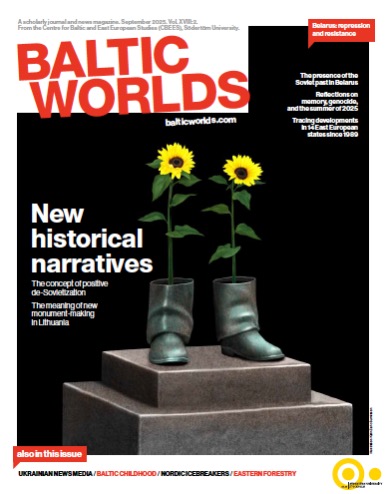Edward Kasinec and Nathaniel Knight
Edward Kasinec is a Research Associate, Harriman Institute, Columbia University and, since 2014 Visiting Fellow, Hoover Institution, Stanford University. His career includes service as Reference Librarian/Archivist and Staff Advisor in Exhibitions in several prestigious institutions. Since 1969, Kasinec has published more than two hundred refereed articles and books.
Nathaniel Knight is a Professor of History and Chair of the History Department at Seton Hall University. Has published extensively on issues of ethnicity, race and the history of the human sciences in Imperial Russia.
view all contributors
Articles by Edward Kasinec and Nathaniel Knight
-
A close reading of Zinoviev and his view of the dissolution of the Soviet Union as a tragedy. Zinoviev helps us to understand how it feels to have your world dismantled and how that experience forms many of the attitudes that lie behind Putin’s policies.
-
Factors such as widespread ennui and resignation should also be seen as part of the explanation for the dissolution of the Soviet Union. The increasing tristesse, combined with a diminishing fear of reprisals, contributed to the collapse of the system, it is here claimed.
-
An exhibition about a woman born in a Europe that has vanished, in a city that no longer exists. Anna is neither East nor West, she is older than that. Her destiny is intertwined with the destiny of Europe. For this reason, the personal becomes universal in this touring exhibition.
-
Illegal logging is the foremost threat to the survival of forests around the world. It also means that many countries lose vast amounts of tax revenue and custom duties. Russia and the Baltic countries account for the largest volume of illegal export to the EU countries.
-
Sweden was the first in Europe to protect nature in urban areas. Today, a wide range of national urban parks are being established in the countries around the Baltic Sea, parks that will satisfy the city-dweller’s need to spend time in nature.
-
Bengt Jangfeldt Språket är Gud Anteckningar om Joseph Brodsky [Language is God: Notes on Joseph Brodsky] Stockholm: Wahlström & Widstrand 2010 367 pages
-
Russia Lost or Found? Patterns and Trajectories Edited by Hiski Haukkala and Sinikukka Saari Helsinki: Ministry of Foreign Affairs & Edita 2009 217 pages
-
Andrei Zubov, (ed. and author), Istoriia Rossii, XX vek. 1894–1939, Istoriia Rossii, XX vek. 1939–2007, [The history of Russia:
The 20th century. 1894– 1939; The history of Russia: The 20th century. 1939–2007] Moscow: Astrel 2009, 1,023+829 pages
-
Bernd Henningsen, Dänemark C H Beck. 2009, 229 pages (From the series: Die Deutschen und ihre Nachbarn)
-
Einar Maseng, Utsikt over de nord-europeiske staters utenrikespolitikk i de siste århundrer
[An overview of the Northern European States’ foreign policy during the last centuries]. I–III
Oslo: Universitets-forlaget 2005: 323, 291, 353 pages
-

 Issue 2025, 2:
Issue 2025, 2: